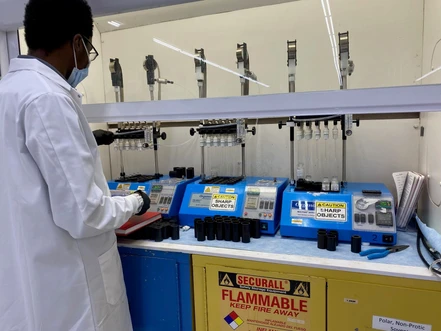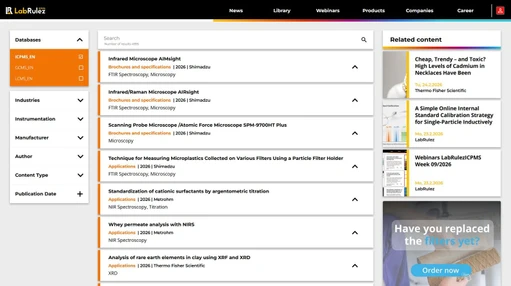V4+ Conference on Environment and Health in Central Europe

- Photo: RECETOX/Lukáš Rýznar: Conference on Environment and Health in Central Europe.
- Video: RECETOX: 40 years on a path toward a healthy future
The international conference on environment and health in Central Europe, organized on the occasion of the Czech Presidency of the Visegrad Four (V4), took place on Monday, 11 March 2024, at the library of the Masaryk University campus in Brno, Czech Republic. Organised jointly by the Ministry of the Environment and the Ministry of Health in cooperation with the RECETOX Centre of Masaryk University, the conference brought scientists and experts from nine Central European countries (extended V4+ format) to Brno, together with representatives of the best European research institutes dedicated to research on environmental exposures and public health, as well as high level representatives of the World Health Organisation and director of the European Environment Agency.
More than 100 participants agreed that to protect people's health in the Central European region from the negative consequences of chemical exposures, we need to strengthen cooperation between the environment and health sectors, share available data and use it in decision-making processes. However, it must also be acknowledged that there is a lack of data in this region, which has many historical and cultural specificities, and the problems of Central Europe are not visible at the European level.
It is therefore necessary to strengthen cooperation among Central European countries and to formulate common regional priorities and strategies. Further, It is possible to use ongoing projects and partnerships to promote these priorities at European level, but also to seek financial resources at national and international level. The countries agreed on the need for long-term investment in research infrastructures for long-term environmental and population studies, laboratory capacities and database systems.
 RECETOX/Lukáš Rýznar: Conference on Environment and Health in Central Europe.
RECETOX/Lukáš Rýznar: Conference on Environment and Health in Central Europe.
The need to restore trust in science, which is declining with the development of new communication channels and social networks, was also strongly voiced. There is a need to educate youth and children and to make them literate in environmental and lifestyle issues and their impact on human health and the functioning of society, but especially in critical thinking and the ability to sort information.
In order to do this, new multidisciplinary educational modules need to be developed not only for children but also for teachers in primary and secondary schools. However, there are also gaps in university education, because in the countries of Central and Eastern Europe, there is virtually no training of experts in epidemiology and environmental health, areas that are essential for the development of a comprehensive concept of public health, but also for the development of precision medicine.
 RECETOX/Lukáš Rýznar: Conference on Environment and Health in Central Europe.
RECETOX/Lukáš Rýznar: Conference on Environment and Health in Central Europe.
In order to develop a personalised approach to the prevention, diagnosis and treatment of chronic conditions, a better understanding of the relationships between genetic predispositions, environmental and social stressors and individual behaviour is needed. Collaborative efforts are also needed in the region to develop this education. There is an opportunity to jointly develop not only bachelor's or master's degree programmes, but also training modules for use in the lifelong learning of professionals in public health, occupational medicine and clinical medicine.
 RECETOX/Lukáš Rýznar: Conference on Environment and Health in Central Europe.
RECETOX/Lukáš Rýznar: Conference on Environment and Health in Central Europe.
Much attention was paid to participatory programmes and public involvement in research activities that can be used not only to obtain data on population health and behaviour, but also to educate children and adults. The use of new smart technologies, such as personal sensors and samplers, is useful for this purpose.
The Czech Republic, for example has one of the oldest biomonitoring programmes in Europe operated by the National Institute of Public Health in Prague, and in Brno itself, whose Living Laboratory has been running not only the CELSPAC population studies for many years, but also participatory programmes for school children and adults, were cited as examples of good practice at these meetings.
The RECETOX Centre at Masaryk University, which has been coordinating for several years the building of the EIRENE global infrastructure for research on the effects of environmental exposures on human health, has also contributed to this.
 RECETOX/Lukáš Rýznar: Conference on Environment and Health in Central Europe.
RECETOX/Lukáš Rýznar: Conference on Environment and Health in Central Europe.
The conclusions of the conference were presented yesterday at a follow-up meeting of Central European Environment Ministers, where the priorities of the individual countries were further discussed. One of the topics discussed at both conferences was the possibility of promoting a European research mission on the healthy physical and mental development of children and young people in the face of complex environmental, socio-economic and political crises.
This conference represents an important step towards strengthening international cooperation and dialogue between different sectors to ensure a safe and healthy environment for the citizens of Central Europe.
 RECETOX/Lukáš Rýznar: Conference on Environment and Health in Central Europe.
RECETOX/Lukáš Rýznar: Conference on Environment and Health in Central Europe.




